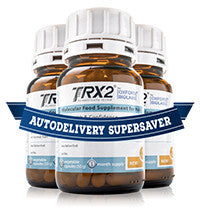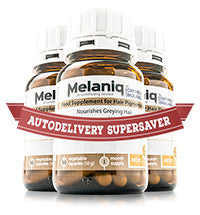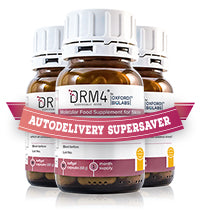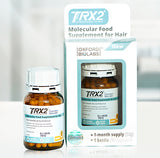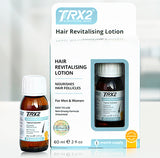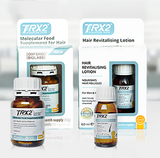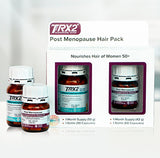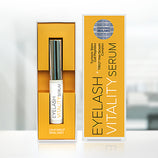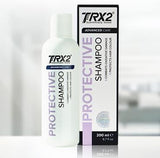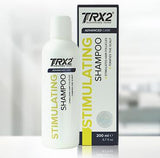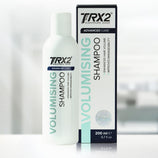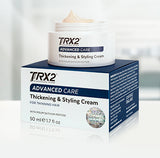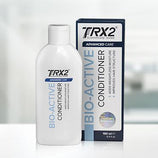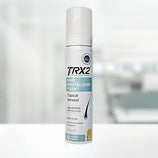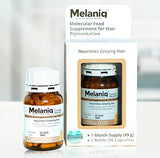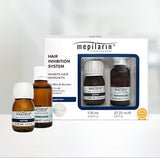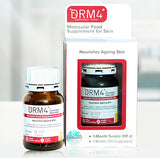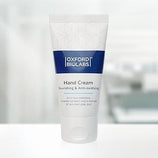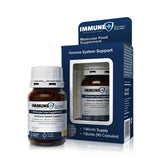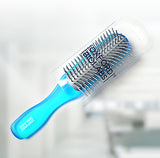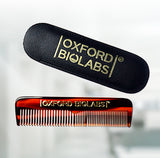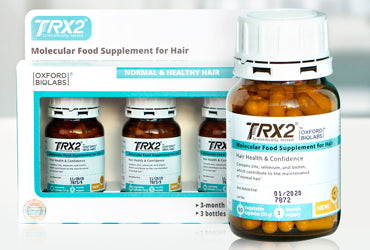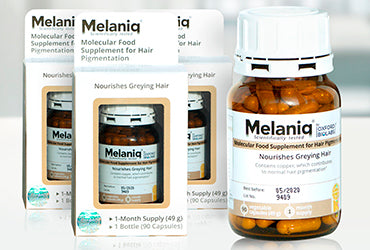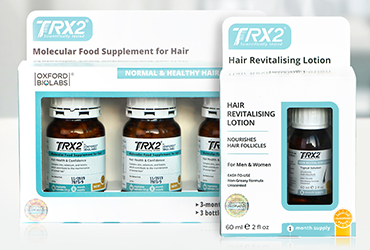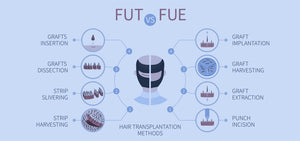How to Use Collagen to Treat Hair Loss
Collagen supplements for hair, nails, and skin are all over the news lately as people begin to realise the benefits of this incredible nutrient. It’s hard to shop for hair products or look at a beauty blog without seeing some new ad for collagen pills, capsules, vitamins, or more.
Although there are plenty of hair treatments out there using collagen, there’s a surprising lack of information about what the substance is, where it comes from, and exactly how it works.
What Is Collagen
Simply put, collagen is one of the most fundamental building blocks of the human body. It’s the main ingredient in cartilage, the substance that keeps our joints and tendons together. It’s also an important component of skin, blood vessels, and digestive tracts.
In fact, any part of the body that needs to stretch without tearing or breaking uses collagen. The substance lends an elasticity that is unparalleled in biology.
It’s also the most common type of protein in the human body. On average, 30% of the protein found in any given person is classified as collagen. There are at least 16 kinds of collagen found in humans, though about 80-90% of it falls into just three types.
- Type I: Found in skin, the heart, internal organs, tendons, and bone.
- Type II: Makes up cartilage, the substance that cushions and binds our joints together.
- Type III: Also called reticulate, it is usually used in conjunction with Type I.
These are also the types that are most commonly taken in through food and supplement sources. Collagen production naturally drops off as a person ages, and the deficiency that results is a major cause of numerous health issues.
How Hair Growth is Affected by Collagen
The most visible signs of the resulting collagen deficiency are problems with the hair, skin, and nails. As our collagen levels drop, our skin loses its elasticity, causing wrinkles and sag. Our cartilage and bones grow weaker, causing joint pains and an increased risk of fractures.
Our follicles depend on collagen too, to help keep them moisturised, strong, and well-supplied with the raw materials of hair. Hair produced by collagen-deprived follicles is brittle, dry, and dull. There’s also much less of it, as the follicles simply give up and stop growing.
Although it's important for social conventions and personal happiness, hair isn’t a biological priority. When a person has a nutrient deficiency of any kind, from protein to vitamins and minerals, the body focuses on the necessities, and hair falls to the wayside. The body naturally reallocates its remaining resources to ensure that critical organs like the heart and brain receive what they need. The result is thinning hair, and eventual baldness.
A recent study at Tokyo Medical and Dental University found that the hair follicles of older people convert themselves into skin cells, as a direct cause of baldness. Follicles naturally regenerate over time using stem cells, but only if those stem cells are protected by collagen type 17A1. The collagen depletion that also occurs with age causes incidental damage to the stem cells in the scalp, rendering them useless.
Collagen Benefits for Hair, Nails, and Skin

A collagen deficiency can be fixed via food or supplements, yielding dramatic results.
- Reduce Cellulite. Proper collagen supplementation will melt away cellulite, getting rid of that “cottage cheese” look to the fattier parts of the body.
- Stimulates Natural Collagen Production. One of the nicest things about these supplements is that they support the body’s own efforts to keep nutrient levels up. Essentially, the body needs collagen to make collagen.
- Reduce Joint Pain. This isn’t a direct benefit to one’s looks, but getting enough of this important nutrient replenishes cartilage, allowing joints to work more smoothly.
- Natural Anti-Inflammatory. Collagen acts as a soothing barrier throughout the body, strengthening the skin, hair, nails, and even organs. This helps reduce inflammation, a major cause of baldness and a host of other ills.
- Moisturises the Hair. That same property also keeps hair from drying out. Moisturised hair is stronger, thicker, and shinier. Even if hair follicles aren’t producing as much as they once did, the higher quality hair will help hide the fact.
- Antioxidant Properties. Finally, collagen is a great antioxidant. Free radicals are one of the most common causes of visible aging. Antioxidants bind with them, rendering them inert before they can do any damage.
How Collagen Helps Hair Health (and Nails, Skin, and Teeth!)
So, this is a wonderful thing for our bodies, inside and out. There are many, many biological mechanisms by which the body uses collagen for hair growth, but here are a few of the most important.
Regulates Hormones
An imbalance of hormones, particularly the sex hormones of testosterone and estrogen, is one of the most common causes of hair loss in both men and women of all ages. Collagen is full of amino acids that help regulate the production of hormones, ensuring that our hair stays healthy.
Strengthens Hair
People always notice when their hair stops growing, but it’s just as important to make sure hair is strong and healthy. Dry, brittle, dull hair is every bit as important a warning signal as a lack of hair, and it looks just as bad. Adequate collagen levels make sure that the follicles pump out high quality, healthy, beautiful hair.
The Foundation of Nails and Teeth
In addition to hair, collagen is also the basic building block of nails and teeth. People suffering from thin, weak, easily chipped nails found that collagen supplementation quickly remedied the problem simply by providing the body with more raw materials.
Supports Skin Elasticity
Anyone who’s lost weight knows the struggle of stretch marks. Those unsightly lines can make anyone feel as though all their hard work only took them from the frying pan to the fire. The root cause of stretch marks is a loss of elasticity in the skin. In other words, the skin can’t snap back to its natural shape, and instead sags or tears. Collagen helps tighten the skin back in, reducing or even eliminating blemishes.
Fights Wrinkles
The same goes for the most visible sign of ageing. Just like stretch marks, wrinkles are caused by a loss of elasticity in the skin. Healthy collagen levels will help keep skin smooth, firm, and youthful by allowing the body to replenish and replace damaged cells. Aged, saggy, loose skin cells are reabsorbed back into the body to be replaced with fresh new reinforcements.
Natural Food Sources of Collagen

Collagen is only found in animals, particularly around the bones. However, there are several vitamins that support natural collagen production. These nutrients are easily found in plant sources, making a well-rounded diet the key to high levels.
- Bone Broth: Nobody wants to eat cartilage, but that’s where collagen is found. A tasty way to get it into one’s diet is through bone broth, essentially a stock made from beef, chicken, or any other meat animal bones. Bone broth has all sorts of other health benefits, and it’s tasty to boot. It’s available on stores, or try one of our favourite recipes.
- Gelatin: This common food additive, and the main ingredient in Jell-O brand desserts, is in fact pure collagen. It’s made by boiling down bones and cartilage, just like bone broth, then processed to lend its thickening, binding properties to food. Note that vegan gelatins are made from algae and do not provide collagen.
- Salmon: This marine superfood doesn’t provide much collagen, but it is rich in zinc and Omega-3 fatty acids. Zinc is a key component in the body’s collagen production, triggering the body to convert proteins into several different nutrients. The fatty acids, meanwhile, are powerful antioxidants that support health in all sorts of ways.
- Eggs: Eggs are an excellent source, particularly when both the yolk and the white are eaten. The whites are composed mostly of collagen, but the yolks make the whites more bioavailable, helping the body process and digest them. They also contain trace amounts of the nutrient themselves.
- Citrus: Although there’s no collagen to be found in plant sources, vitamin C enables the body to produce its own collagen by linking together amino acid chains. Without a good mix of C and other nutrients, the body can’t kickstart the process that leads to healthier hair, skin, and bones.
Alternative Collagen Sources
To quickly boost collagen levels, it can be helpful to use one of the many supplements available on the market. These are available from numerous retailers and online stores, do not require a prescription, and can be very effective. Be sure to choose only quality supplements that are independently certified and tested.
- Powders: Powdered supplements work much like protein powder. Stir a scoop into water, milk, or juice, or blend it into a smoothie. They even come in a variety of flavors like chocolate and vanilla, and are packed with protein as well as collagen. These are popular for people on paleo diets, who can’t use traditional protein mixes.
- Pills: Supplement pills are very easily available as both tablets and gel caps. This can be a quick and convenient way to get more collagen. They’re also lower calorie than other options, as they don’t need to include sugar and fillers in order to make the nutrients palatable.
- Gummies: Gummy vitamins aren’t just for kids these days; a variety of multis and individual nutrients are mixed into candy and sold by the bottle.
- Liquids: Many vitamins and nutrients become far more bioavailable when served in liquid form. The body doesn’t need to work as hard to digest a liquid as it does a solid, and there’s less chance that the nutrients will pass through the body without being used. Liquids are expensive and may need refrigeration, but they are very effective.
- Creams and Hair Masks: Collagen is available as a topical treatment as well. It’s a popular ingredient in a variety of skin creams, lotions, serums, and hair treatments. It’s unclear how well these work, if at all. The body can absorb nutrients through the skin, but it’s much less efficient than taking them internally.
Does Collagen Really Work?
That’s the big question. Collagen supplements and treatments are everywhere, and they promise to tighten skin, bring hair back, and strengthen nails.
Can they really do it?
The science isn’t fully conclusive yet, but it is promising. Multiple studies have shown that there are real benefits that just aren’t completely understood.
- In 2008, a study at Penn State University studied the effects of a hydrolysed collagen supplement on athletes. After six months of supplementation, the athletes reported less joint pain both on the field and off. These findings have been expanded and corroborated by other research institutions, including the University of Michigan.
- A 2014 study in the UK found that taking a particular collagen supplement “reduces visible signs of ageing”, including markedly improved skin condition and a reduction in wrinkles. It should be noted that this study was funded by the creators of that particular supplement, and it’s likely that other supplements would be just as effective.
- In 2015, the Journal of Investigative Dermatology published a study that found high levels of collagen within hair follicles, suggesting that the nutrient is important to their function. The study suggests further research would be worthwhile to investigate their specific relationship, and that collagen could be used as a medical treatment for hair loss and skin disorders.
More studies are in progress, as the medical industry begins to understand the potential of this nutrient.
So, although there’s no single definitive answer yet, the evidence is strong that ingesting collagen does help the hair, skin and nails, and has many other health benefits beyond the cosmetic.
Side Effects of Collagen Supplements
At the same time, taking collagen-based hair growth vitamins does little to no harm to the body. There are no serious, widespread side effects associated with collagen. However, as with any supplement, there are a few cautions anyone should take.
- Calcium: Collagen supplementation can cause a buildup of calcium in the body, which in some people leads to stomach distress and frequent urination.
- Allergic Reactions: Just like any food or medicine, some people are allergic to collagen. The possibility was established in a 1996 study conducted in Australia and New Zealand, in which some participants developed throat symptoms after eating foods containing beef gelatin.
- Bad Aftertaste: Finally, collagen doesn’t taste very good, and there’s not much that can be done for it. Some people who use supplements, particularly powders or liquids, report a bad taste in their mouth even after they finish their dose. Washing it down with juice can help with this.
When starting or ending any supplement regimen, it’s best to consult with a medical professional.
An Underrated Powerhouse
If diets, supplements, and prescription medications haven’t shown hair growth results, try collagen. It’s highly underrated, and it supports overall health in many ways.
From heart and stomach, to teeth and bones, and of course hair, collagen is something every part of the body can use more of.
